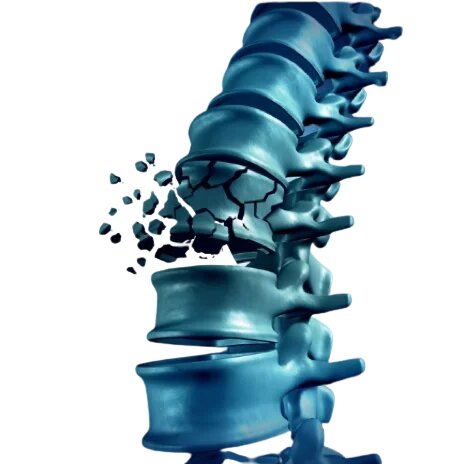Spinal fracture
Definition
 A fracture is the rupture of the dyaphyseal or metaphyseal or epiphyseal bone continuity depending on the site. It can be:
A fracture is the rupture of the dyaphyseal or metaphyseal or epiphyseal bone continuity depending on the site. It can be:
Dyaphyseal or metaphyseal or epiphyseal depending on the seat.
Simple or complex.
Transverse or oblique or spiroid.
Stable or unstable depending on bone displacement.
Open or closed.
Clinical signs of spinal fracture
Spinal fracture without neurological lesions
Dorso-lumbar pain.
Lower limb motor skills retained.
Exaggerated protrusion of a thoracolumbar spiny.
Spinal fracture with neurological damage
Dorso-lumbar pain.
Totally functional impotence.
Complete paraplegia
Superficial anesthesia.
Abolition of deep tendon reflexes.
Flaccid paralysis of the lower limbs.
Retention of urine: sphincter disorders.
Exaggerated protrusion of a thoracolumbar spine.
Risks and complications of spine fractures
Neurological disorders.
Urinary retention.
Reflex ileus with subocclusive syndrome.
State of shock.
Deep vein thrombosis.
Paraplegia.
Treatments for spine fractures
Bloody reduction.
Osteosynthesis.